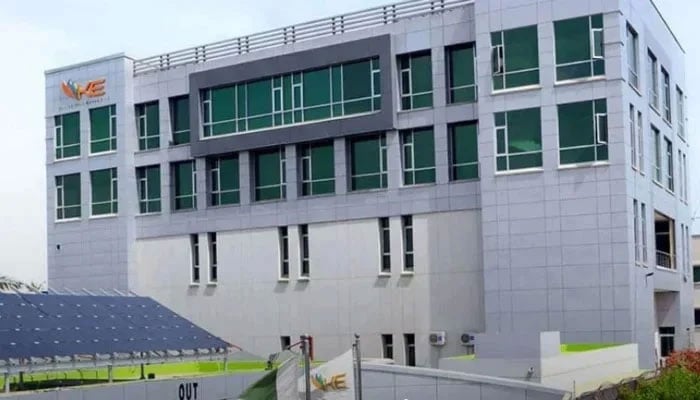The price of passive shareholding
Investments made by KE since privatisation carried out plans funded largely by consumer
July 13, 2025

When Pakistan auctioned a 73% stake in the then Karachi Electric Supply Company (KESC) in November 2005, the transaction was sold as a textbook case of how privatisation could cut fiscal leakages and deliver modern service to 20 million citizens.
For a decade that promise held, with Abraaj, taking management control in 2009, ploughing US $1.7 billion of consumer funded investment, into new generation, smart meters and theft-proof cabling, and slashed technical-and-commercial losses from 36% to 22%. EBITDA ballooned from a negative Rs4 billion in FY-2009 to a record Rs51 billion in FY-2017; annual tariff-differential subsidies fell by two-thirds. Karachi finally enjoyed round-the-clock power while the federal treasury saved money.
Then the lines blurred. Abraaj collapsed in 2018; its equity had to be off-loaded under court-supervised liquidation. Instead of one hard-nosed sponsor with capital and a clear exit path, K-Electric found itself controlled, de-facto, by minority shareholders from Saudi Arabia and Kuwait who together own barely a third of the holding company but exercise veto rights through offshore agreements. From that moment the governance conversation slipped from boardrooms to chancelleries.
Every distribution-loss plateau, every delayed tariff true-up, every skirmish over receivables was recast as a bilateral issue among "brotherly countries" rather than a management problem inside a regulated utility.
It is also essential to note here that the operational and financial performance of the entity did not improve under control of the current minority shareholders, from 2005 to 2009, only to cede control to Abraaj, which improved overall performance over next eight years.
Following the demise of Abraaj, fresh capital or a controlling shareholder never arrived, or was never allowed to take control. The minority investors, who had ridden the upswing without adding fresh capital, pivoted from performance metrics to diplomatic leverage.
Karachi’s grid quietly paid the price. Transmission & Distribution Losses flat-lined at 15%, no new megawatt of company-owned capacity has been commissioned in seven years, whatever generation capacity exists, is now more expensive than the grid, and EBITDA has tumbled two-thirds from its 2017 peak. The fiscal faucet reopened: tariff-differential subsidies jumped back above Rs75 billion in FY-2023 and KE’s receivable from various federal entities sit in excess of Rs164 billion.
Electricity networks are globally treated as quasi-monopolies with explicit social obligations. That is why regulators ring-fence them with multi-year tariffs, step-in rights and forced recapitalisation clauses. Allowing diplomatic considerations to override those frameworks undermines all three pillars at once.
A grid needs predictable equity injections, meanwhile diplomacy produces stop-start cash as negotiations drag on. Similarly, when every tariff order risks being escalated to a foreign office cable, regulators hesitate to issue decisions and backlog snowballs. Consumers balk at paying inflation-linked surcharges if they believe revenues serve a geopolitical agenda rather than service quality.
There exists clear global precedence, where Italy’s Enel, Spain’s Iberdrola and Brazil’s Neoenergia all invite foreign capital, but only through structures that sequester board governance from diplomatic currents. Independent governance needs to be hardwired and the sovereign should play a more active role on the board. Any strategic investment needs to be firewalled from board resolutions turning into diplomatic disputes.
The regulator should be empowered to appoint an interim operator if loss-reduction targets are missed for two consecutive years, mirroring the UK’s Special Administration Regime for critical utilities. Any expansion plan that does not result in expected improvement in efficiency must have a claw-back mechanism, to avoid expansion for the sake of it all, funded by consumers.
Investments that have been made by K-Electric since privatisation have been done through investment plans that are funded largely by the consumer. In such a scenario, it makes little sense that those financing investments have little to no say in the overall governance, but those who haven’t injected any capital in two decades continue to defer decisions for a city with a population of more two million.
A utility must not be used as a diplomatic bargaining chip. Starving its grid of capital and operational efficiency, because two minority investors see strategic symbolism is self-harm. It also sets a precedent that critical infrastructure may be held hostage to unrelated diplomatic goals, a precedent that will scare off exactly the technology partners Pakistan wants in other strategic areas.
The minority investors under question here have not added any fresh capital in last two decades. This is strictly a governance problem, and one must appreciate the management that has pushed through despite below-par governance, marred by overarching foreign policy engagements.
Separating foreign policy from core operations is not an abstract governance nicety, it is the only route back to sustained efficiency gains and lower subsidies. There should be no diplomatic immunity for bad performance.
Disclaimer: The viewpoints expressed in this piece are the writer's own and don't necessarily reflect Geo.tv's editorial policy.
The writer is an assistant professor of practice at the School of Business Studies, IBA, Karachi.
Originally published in The News











